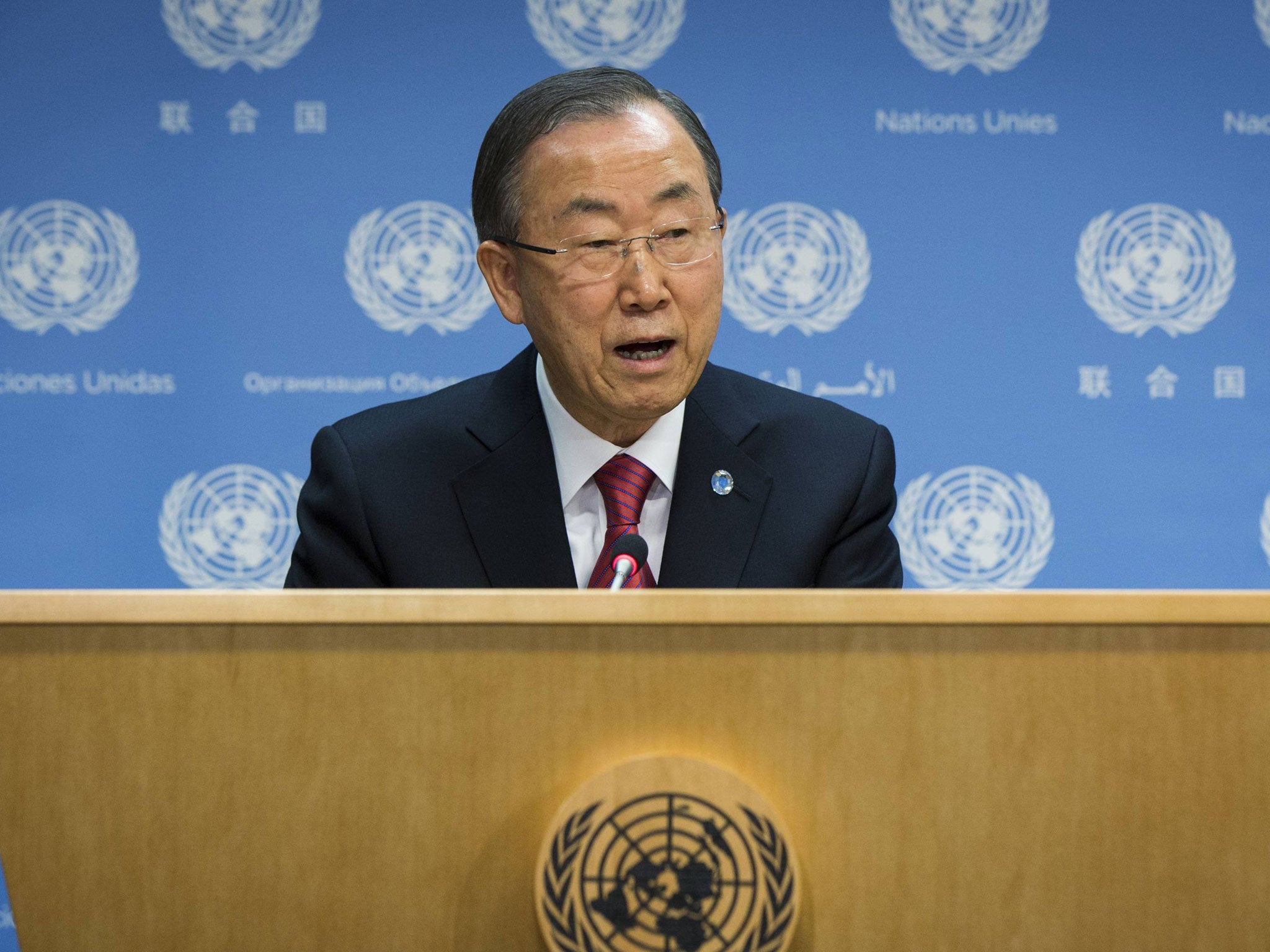Syria's warring government and opposition are to meet for the first time in an attempt to halt the fighting that has killed more than 100,000 people.
Previous attempts to bring the two sides together have failed, mainly because of disputes over who should represent the Syrian opposition and government, Syrian president Bashar Assad's future role in the country, and whether Iran, Saudi Arabia and other regional powers should be at the table.
UN Secretary-General Ban Ki-moon urged the government and opposition to help the conference succeed by taking steps to stop the violence, provide access for desperately needed humanitarian aid, release detainees, and help hundreds of thousands of refugees and internally displaced people return to their homes.
He said a key goal of the conference, which starts in Geneva in January, would be the establishment of a transitional government with powers over military and security.
The UN did not specify who will be representing Syria's opposition at the talks, but British Foreign Secretary William Hague said the main opposition group, the Syrian National Coalition, will participate. The group has limited control over the myriad rebel groups fighting Assad's forces.
Iran, a staunch supporter of Assad, has given him significant financial support and is believed to have sent military advisers, trained pro-government militiamen and directed one of its proxies, Lebanon's Shiite Muslim Hezbollah group, to fight alongside his troops.
The UN's goal is based on the roadmap for a Syrian political transition adopted by the US, Russia and other major powers at a conference on Syria in June 2012 in Geneva, in which the warring sides were not invited.
It envisioned the establishment of a transitional governing body with full executive powers agreed to by both sides, and ending with elections. But there has been no agreement on how to implement it.
One of the biggest sticking points has been the future role of Assad.
Earlier this month, the Syrian National coalition agreed to attend peace talks if a number of conditions were met, including humanitarian corridors to give relief agencies access to besieged areas and the release of detainees, particularly women.
But the group stressed that Assad could have no role in the transitional period. The coalition dropped an earlier demand that he step down ahead of talks.
Syrian government officials have insisted Assad would not step down and may even run for another term in presidential elections scheduled for mid-2014.
Recent battlefield victories have shifted the momentum of Syria's conflict in Assad's favour.
Russia has been the key sponsor and ally of his government, blocking UN Security Council resolutions that would slap it with sanctions, and continuing to provide it with weapons.
Last week the UN General Assembly's human rights committee demanded that Syria's government immediately allow humanitarian aid to reach all areas of the country and stop hampering distribution with "bureaucratic impediments and other obstacles."
AP

Join our commenting forum
Join thought-provoking conversations, follow other Independent readers and see their replies
Comments